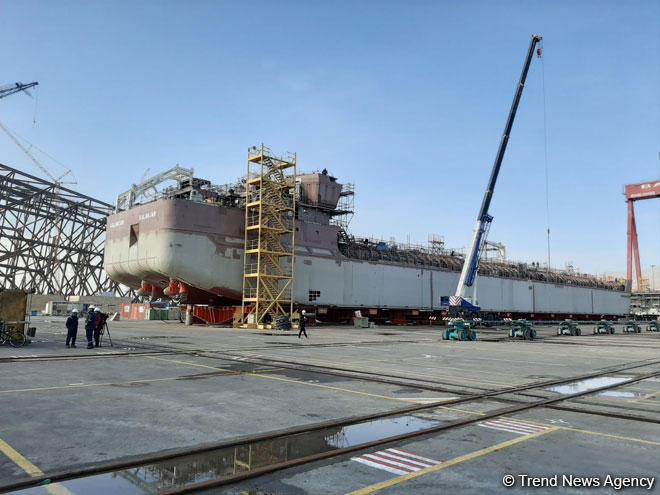
Azerbaijan To Retire Multiple Obsolete Vessels To Cut Greenhouse Gas Emissions
ASCO has developed a Strategy and Action Plan to achieve this goal. By the plan, the following stage-by-stage activities are envisaged as a continuation of decarbonization measures.
The first phase covers the years 2024-2027. During this phase, 65 obsolete and inefficient vessels with a total deadweight of 26,595 tons are scheduled to be decommissioned, which is expected to reduce greenhouse gas emissions from the company's vessels by approximately 25 percent.
Furthermore, fleet renewal, as well as the acquisition or construction of more modern and fuel-efficient vessels, are planned for the initial phase. According to ASCO's plans for 2024-2027, 17 new vessels will be added to the fleet.
Meanwhile, it is expected that the replacement of ships with larger, higher capacity and up to 20 percent more energy-efficient ships, taking into account the increase in fleet deadweight, will reduce emissions by up to nine percent.
The second phase, covering 2027-2030, involves the construction or acquisition of methanol-fueled and all-electric vessels, as well as the modernization of existing vessels. During this period, it is planned to build five methanol-powered support vessels, five methanol-powered passenger vessels, and seven methanol-powered tankers, as well as four electric-powered harbor tugs, and to retrofit eight vessels for conversion to methanol. It is expected that the use of blue methanol on these vessels, taking into account the increase in the deadweight of the fleet, will lead to a reduction in emissions by up to 10 percent.
Methanol use can help reduce CO2 emissions by 7 percent, SOx emissions by 99 percent, and NOx emissions by 60 percent compared to diesel.
The transition to the use of alternative fuels across the fleet is scheduled for a third phase covering 2030–2040. Thus, in line with IMO targets, emissions will be reduced by 70–80 percent compared to 2008.
The fourth phase spans the years 2040–2050. During this period it is planned to completely switch to alternative fuel and zero-emission technologies, which, as per IMO objectives, means a 100 percent reduction of emissions and achievement of zero emissions.
To note, ASCO has a short-term action plan, whereby the first 3 phases are to be completed by 2030. Although the project envisages a transition to methanol-powered ships by 2027, financial support is already being sought to accelerate this process.

Legal Disclaimer:
MENAFN provides the
information “as is” without warranty of any kind. We do not accept
any responsibility or liability for the accuracy, content, images,
videos, licenses, completeness, legality, or reliability of the information
contained in this article. If you have any complaints or copyright
issues related to this article, kindly contact the provider above.
















Comments
No comment